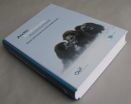(Press-News.org) Unique and irreplaceable Arctic wildlife and landscapes are crucially at risk due to global warming caused by human activities according to the Arctic Biodiversity Assessment (ABA), a new report prepared by 253 scientists from 15 countries under the auspices of the Conservation of Arctic Flora and Fauna (CAFF), the biodiversity working group of the Arctic Council.
"An entire bio-climatic zone, the high Arctic, may disappear. Polar bears and the other highly adapted organisms cannot move further north, so they may go extinct. We risk losing several species forever," says Hans Meltofte of Aarhus University, chief scientist of the report.
From the iconic polar bear and elusive narwhal to the tiny Arctic flowers and lichens that paint the tundra in the summer months, the Arctic is home to a diversity of highly adapted animal, plant, fungal and microbial species. All told, there are more than 21,000 species.
Maintaining biodiversity in the Arctic is important for many reasons. For Arctic peoples, biodiversity is a vital part of their material and spiritual existence. Arctic fisheries and tourism have global importance and represent immense economic value. Millions of Arctic birds and mammals that migrate and connect the Arctic to virtually all parts of the globe are also at risk from climate change in the Arctic as well as from development and hunting in temperate and tropical areas. Marine and terrestrial ecosystems such as vast areas of lowland tundra, wetlands, mountains, extensive shallow ocean shelves, millennia-old ice shelves and huge seabird cliffs are characteristic to the Arctic. These are now at stake, according to the report.
"Climate change is by far the worst threat to Arctic biodiversity. Temperatures are expected to increase more in the Arctic compared to the global average, resulting in severe disruptions to Arctic biodiversity some of which are already visible," warns Meltofte.
A planetary increase of 2 °C, the worldwide agreed upon acceptable limit of warming, is projected to result in vastly more heating in the Arctic with anticipated temperature increases of 2.8-7.8 °C this century. Such dramatic changes will likely result in severe damage to Arctic biodiversity.
Climate change impacts are already visible in several parts of the Arctic. These include northward range expansions of many species, earlier snow melt, earlier sea ice break-up and melting permafrost together with development of new oceanic current patterns.
It is expected that climate change could shrink Arctic ecosystems on land, as northward moving changes are pressed against the boundary of the Arctic Ocean: the so called "Arctic squeeze". As a result, Arctic terrestrial ecosystems may disappear in many places, or only survive in alpine or island refuges.
Disappearing sea ice is affecting marine species, changing dynamics in the marine food web and productivities of the sea. Many unique species found only in the Arctic rely on this ice to hunt, rest, breed and/or escape predators.
Other key findings
Generally speaking, overharvest is no longer a primary threat, although pressures on some populations remain a serious problem.
A variety of contaminants have bioaccumulated in several Arctic predator species to levels that threaten the health and ability to reproduce of both animals and humans. However, it is not clear if this is affecting entire populations of species.
Arctic habitats are among the least anthropogenic disturbed on Earth, and huge tracts of almost pristine tundra, mountain, freshwater and marine habitats still exist.
Regionally, ocean bottom trawling, non-renewable resource development and other intensive forms of land use pose serious challenges to Arctic biodiversity.
Pollution from oil spills at sites of oil and gas development and from oil transport is a serious local level threat particularly in coastal and marine ecosystems.
Uptake of CO2 in sea water is more pronounced in the cold Arctic waters than elsewhere, and the resulting acidification of Arctic seas threaten calcifying organisms and maybe even fisheries.
Shipping and resource development corridors are rapidly expanding and may dramatically increase the rate of introduction of alien species.
There is an enormous deficit in our knowledge of species richness in many groups of organisms, and monitoring in the Arctic is lagging far behind that in other regions of the world.
The multitude of changes in Arctic biodiversity – driven by climate and other anthropogenic stressors – will have profound effects on the living conditions of peoples in the Arctic.
INFORMATION:
Contact:
Chief scientist and executive editor, senior advisor DSc. Hans Meltofte
Department of Bioscience and Arctic Research Centre, Aarhus University
Chief Scientist and executive editor of the ABA
Tel. +45 8715 8691
Mobile tel. +45 2988 9278
Email: mel@dmu.dk
Further information:
Arctic Biodiversity Assessment:
Arctic Biodiversity Assessment report
Arctic Biodiversity Assessment Synthesis
Arctic Biodiversity Assessment Report for Policy Makers (available in English, French, Russian and Inuktitut)
(printed versions are on sale through the Arctic Biodiveristy Assessment online store, http://www.arcticbiodiversity.is/index.php/store)
Additional information for members of the press (photos, videos, backgrounders)
http://www.arcticbiodiversity.is/index.php/press
Arctic biodiversity under serious threat from climate change according to new report
Climate change caused by human activities is by far the worst threat to biodiversity in the Arctic
2014-02-14
ELSE PRESS RELEASES FROM THIS DATE:
Pregabalin effectively treats restless leg syndrome with less risk of worsening symptoms
2014-02-13
A report in the Feb. 13 New England Journal of Medicine confirms previous studies suggesting that long-term treatment with the type of drugs commonly prescribed to treat restless leg syndrome (RLS) can cause a serious worsening of the condition in some patients. The year-long study from a multi-institutional research team found that pregabalin – which is FDA-approved to treat nerve pain, seizures, and other conditions – was effective in reducing RLS symptoms and was much less likely to cause symptom worsening than pramipexole, one of several drugs that activate the dopamine ...
Environment change threatens indigenous know-how
2014-02-13
The way indigenous cultures around the globe use
traditional medicines and pass on knowledge developed over centuries is directly linked to the
natural environment, new research has found. This makes indigenous cultures susceptible to
environmental change, a threat that comes on top of the challenges posed by globalisation.
"Traditional medicine provides health care for more than half the world's population, with 80 per
cent of people in developing countries relying on these practices to maintain their livelihood. It
is a very important part of traditional knowledge," ...
Understanding the basic biology of bipolar disorder
2014-02-13
Scientists know there is a strong genetic component to bipolar disorder, but they have had an
extremely difficult time identifying the genes that cause it. So, in an effort to better
understand the illness's genetic causes, researchers at UCLA tried a new approach.
Instead of only using a standard clinical interview to determine whether individuals met the
criteria for a clinical diagnosis of bipolar disorder, the researchers combined the results from
brain imaging, cognitive testing, and an array of temperament and behavior measures. Using the
new method, ...
Most people have access to stroke care, but few get recommended treatment
2014-02-13
Four out of five people in the United States live within an hour's drive of a hospital equipped to treat acute stroke — yet very few get recommended treatment, according to research presented at the American Stroke Association's International Stroke Conference 2014.
Of the more than 370,000 Medicare stroke claims for 2011 that researchers examined:
Only 4 percent received tPA, a drug that can reduce disability if given intravenously within three to four hours after the first stroke symptoms.
Only 0.5 percent had endovascular therapy to reopen clogged arteries.
These ...
Common infections may increase risk for memory decline
2014-02-13
Exposure to common infections is linked to memory and brain function — even if the infections never made you ill, according to research presented at the American Stroke Association's International Stroke Conference 2014.
Researchers found an index of antibody levels caused by exposure to Chlamydia pneumoniae, Helicobacter pylori, cytomegalovirus, and herpes simplex viruses 1 and 2 was associated with worse cognitive performance, including memory, speed of mental processing, abstract thinking, planning and reasoning ability.
"We were very interested in what were the risk ...
Blood clot risk remains higher than normal for at least 12 weeks after women deliver babies
2014-02-13
Women's blood clot risk remains elevated for at least 12 weeks after delivering a baby — twice as long as previously recognized, according to a large study presented at the American Stroke Association's International Stroke Conference 2014.
The chance of a blood clot rises during pregnancy, when platelets and other blood-clotting factors increase. The risk peaks around the time of delivery, but researchers found that afterwards it remained:
10.8 times higher during weeks 0-6;
2.2 times higher during weeks 7-12; and
1.4 times higher (a non-significant rise) during ...
Moderate exercise cuts women's stroke risk, helps offset increase risk from hormone thep
2014-02-13
Women don't need to run marathons or do intense aerobics to reduce their stroke risk. Moderate-intensity exercise — such as brisk walking or playing tennis -- may do the trick, according to research presented at the American Stroke Association's International Stroke Conference 2014.
"I was surprised that moderate physical activity was most strongly associated with a reduced risk of stroke," said Sophia Wang, Ph.D., the study's lead author and professor in the department of population sciences within the Beckman Research Institute at the City of Hope in Duarte, Calif. "More ...
Ambulance magnesium treatment fails to improve stroke outcome
2014-02-13
Giving intravenous magnesium to stroke patients soon after the start of symptoms, in an attempt to protect brain cells deprived of oxygen, failed to improve stroke-related disability 3 months later, according to research presented at the American Stroke Association's International Stroke Conference 2014.
Investigators showed that paramedics can successfully deliver intravenous medications to most stroke patients within an hour after symptoms begin. This is the "golden hour" the time in which patients have the best chance to survive and avoid long-term neurological damage. ...
New stem cell method may eliminate need for blood donations to maintain platelet supply
2014-02-13
Platelets, whose primary function is to prevent bleeding, are vital for treating various forms of trauma and blood diseases. However, they can only be obtained through blood donations at present. Researchers reporting online February 13 in the Cell Press journal Cell Stem Cell recently found a way to create platelets without the need for donated blood, an advance that could possibly erase supply shortages and ensure platelet treatments for all who need them.
The supply of donated platelets, which have a short shelf life and must be kept at room temperature, is often ...
Could action video games help people with dyslexia learn to read?
2014-02-13
In addition to their trouble with reading, people with dyslexia also have greater difficulty than typical readers do when it comes to managing competing sensory cues, according to a study reported February 13 in Current Biology, a Cell Press publication. The findings suggest that action video games might improve literacy skills in those with dyslexia, which represent five to ten percent of the population.
"Imagine you are having a conversation with someone when suddenly you hear your name uttered behind you," says Vanessa Harrar of the University of Oxford. "Your attention ...
LAST 30 PRESS RELEASES:
Highly stable self-rectifying memristor arrays: Enabling reliable neuromorphic computing via multi-state regulation
Composite superionic electrolytes for pressure-less solid-state batteries achieved by continuously perpendicularly aligned 2D pathways
Exploring why some people may prefer alcohol over other rewards
How expectations about artificial sweeteners may affect their taste
Ultrasound AI receives FDA De Novo clearance for delivery date AI technology
Amino acid residue-driven nanoparticle targeting of protein cavities beyond size complementarity
New AI algorithm enables scientific monitoring of "blue tears"
Insufficient sleep among US adolescents across behavioral risk groups
Long COVID and recovery among US adults
Trends in poverty and birth outcomes in the US
Heterogeneity of treatment effects of GLP-1 RAs for weight loss in adults
Within-person association between daily screen use and sleep in youth
Low-dose lithium for mild cognitive impairment
Catheter ablation and oral anticoagulation for secondary stroke prevention in atrial fibrillation
A new theory of brain development
Pilot clinical trial suggests low dose lithium may slow verbal memory decline
Bioprinting muscle that knows how to align its cells just as in the human body
A hair-thin fiber can read the chemistry of a single drop of body fluid
SwRI develops magnetostrictive probe for safer, more cost-effective storage tank inspections
National report supports measurement innovation to aid commercial fusion energy and enable new plasma technologies
Mount Sinai, Uniformed Services University join forces to predict and prevent diseases before they start
Science of fitting in: Do best friends or popular peers shape teen behavior?
USF study: Gag grouper are overfished in the Gulf; this new tool could help
New study from Jeonbuk National University finds current climate pledges may miss Paris targets
Theoretical principles of band structure manipulation in strongly correlated insulators with spin and charge perturbations
A CNIC study shows that the heart can be protected during chemotherapy without reducing antitumor efficacy
Mayo Clinic study finds single dose of non-prescribed Adderall raises blood pressure and heart rate in healthy young adults
Engineered immune cells show promise against brain metastases in preclinical study
Improved EV battery technology will outmatch degradation from climate change
AI cancer tools risk “shortcut learning” rather than detecting true biology
[Press-News.org] Arctic biodiversity under serious threat from climate change according to new reportClimate change caused by human activities is by far the worst threat to biodiversity in the Arctic



